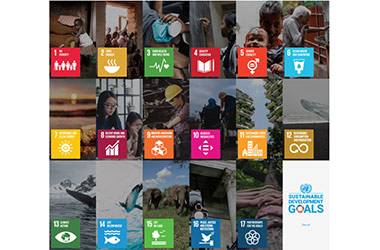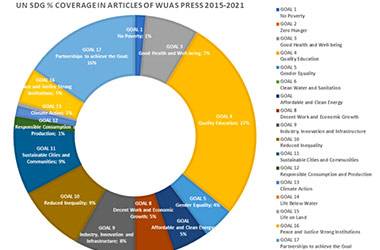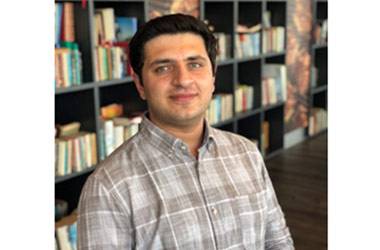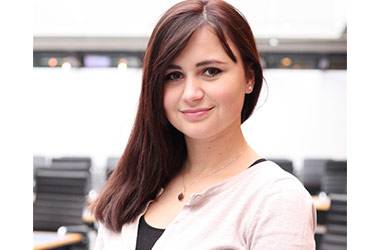Wittenborg Sets to Pick up Pace to Act on UN SDGs & Societal Impact

Wittenborg's Sustainable Development Journey
In 2015, Wittenborg embarked upon a sustainable development journey in terms of mapping, learning and teaching activities and infusing aspects of the United Nations 17 Sustainable Development Goals (SDGs) into its curriculum. Recognising that it has a critical role to play in the attainment of the SDGs, Wittenborg aims to implement not only sustainability, but also climate change in its core operations for the academic year 2021-2022 and also to encourage its students and staff to ‘walk the talk’.
The United Nations 17 SDGs are an urgent call for all countries, whether developed or developing, to ensure peace and prosperity for people and the planet. The main aim of the SDGs is to mobilise efforts, on a global scale, to end poverty and other deprivations, reduce inequalities, improve health and education and tackle climate change.
Universities are the primary institutions for the dissemination of knowledge, making them one of the key players in the attainment of these goals. Although universities are under no obligation to adopt these goals, many universities have chosen to do so, including Wittenborg. In its Strategic Plan 2021-2026, Wittenborg's second initiative is shaping organisational culture to its core values, which are internationalisation, diversity and ethics. Ethics is one of the fundamental values necessary to pursue the integration of SDGs as well as in the actions of the institutions as in the teaching and researching activities. WUAS's societal impact is measured using the UN SDG Taxonomy, as shown in the figure.

Wittenborg's SDG Taxonomy
From its SDG Taxonomy, it is clear that Wittenborg has started work on most of the UN SDGs with Goals 4, 10, 9 and 11 leading the way. This taxonomy is based on a recent analysis of WUAS's press articles between 2015-2021 that exhibits the percentage coverage of SDG goals in WUAS social activities. With regards to SDG Goal 4, which is Quality Education (to ensure inclusive and equitable quality education and promote lifelong learning opportunities for all), Wittenborg has embarked on various projects and initiatives, such as entering into a new research and development partnership, launching a new platform for Chinese students, providing continuous training for its academic staff and ensuring diversity in its enrolment of both staff and students. In its effort to attain Goal 10, which is Reduced Inequalities (to reduce inequality within and among countries), Wittenborg has participated in various projects, such as Vijana Reloaded, a project to boost training among unemployed youth in Kenya, Crowdfunding Campaign and conducting STEAM Programme for underprivileged students.
Besides these, Wittenborg is set to pursue more on Goal 9, Industry, Innovation and Infrastructure, and Goal 11, Sustainable Cities and Communities. With respect to Goal 11, Wittenborg has infused into its classic Project Week curriculum issues such as climate change and recycling. It is also currently heading the 30-month Erasmus+ Project INFURI (Innovation in the Furniture Industry in the Era of Circular Economy), which started in December 2020 and involves 6 European countries.

Starting this year, Wittenborg will have thematic academic years, whereby one universal theme will be chosen to represent the overall concept for the whole year. For the academic year 2021-2022, Wittenborg will adopt the theme of ‘Climate Change’. This means that all activities and curriculum for that year will be related and linked to climate change. To effect this, Wittenborg has adopted a 2-prong approach, via impact on society and impact on students. At the school strategy level, Wittenborg will align all its school-wide activities in line with this theme to make an impact on society. To make an impact on students, teachers are encouraged to infuse the theme as well as any of the SDG goals into their lessons and innovate various activities to involve students in this mission.
When asked what he thinks of this new move, Wittenborg's newest faculty member, Dr Fahad Shakeel, replied, “Universities across the globe have started to pursue SDGs in one form or another due to their pressing nature. Although as teachers we strive to highlight developmental goals in our modules, we are aware that more is needed. To that end, the administration and academic staff are all committed to stretching out a roadmap for similar pragmatic steps. Acquiring international accreditation, setting research focus, and imbibing relevant values in our daily operations are some of the initial few steps on our yellow brick road to a more sustainable and inclusive future.”

WUAS's Assurance of Learning Manager, Kriszta Kaspers, commented that ethical behaviour and choices lie at the heart of 'walking the talk' when it comes to the UN SDGs. "It is not enough anymore to talk about these issues and raise awareness, but we need to turn goals into actions and actions into results. Ethical behaviour and choices could be reduced to one phrase 'doing the right thing' and that is what WUAS sets out to promote to its faculty, staff and students through integrating ethics as a fundamental value at the institution. With the integration of the SDGs in various areas, we can initiate and monitor our activities, measure them against the needs of our people & planet, visualize and even improve social impact, which are ever so necessary and undismissable."
Wittenborg recognises that higher education unquestionably plays a fundamental role in developing socially responsible competencies in students as they are the agents of change in the future. With that in mind, it hopes to address the SDGs in all the various areas of university life, such as training, research, and extension, and it will involve all students, academic faculty and support staff, directly or indirectly.
WUP 31/8/2021
by Hanna Abdelwahab and Kriszta Kaspers
©WUAS Press